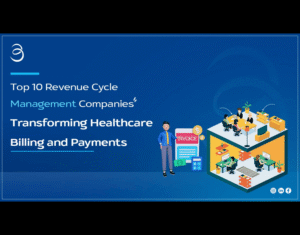
At Gold Star Mentors, we think that all children should have a chance to grow up in a loving, supportive environment, and one of the most effective tools that we have today is music therapy for kids. This unique method combines the emotional and sensory rewards of music with research-based therapeutic methods so that children can discover expression, comfort, and healing through melody and rhythm. Differing from some more conventional approaches that merely address verbal communication, this type of therapy provides a protected and imaginative environment in which children are able to work through feelings and experiences they cannot yet put into words. As educators and parents seek new means of promoting development, music therapy for children has become a scientifically proven, joyful, and effective journey that provides instant relief along with lasting growth.
How Does Music Therapy for Children Work in Reality?
When parents first learn about music therapy for children, they might envision their child merely sitting and listening to calming melodies or learning the chords of a new song on an instrument, but the truth is that the process is much more complex. Licensed music therapists apply rhythm, movement, vocalizing, and interactive tasks to assist children in becoming emotionally and cognitively attached. Every session is tailored to the child’s unique needs, be that anxiety, developmental delay, or behavior issues. For instance, drumming can release energy in a constructive manner, whereas singing may enhance language skills and promote better communication. Because music naturally engages multiple areas of the brain at once, the impact of these sessions often extends beyond the therapy room into improved concentration, social interactions, and emotional regulation. The true strength of music therapy for children lies in its ability to meet kids exactly where they are and help them take the next step forward with confidence.
Why is Music Therapy for Children Beneficial for Emotional Growth?
Feelings can be overwhelming for young minds, and so many children have difficulty expressing what they are feeling on the inside. That is where children’s music therapy comes in as such a precious resource, an alternative language that gives children permission to let it all out safely. A child who cannot yet put into words sadness, frustration, or even happiness may be able to express those emotions through melody or rhythm. By working through these feelings in a guided and non-critical setting, they become more skilled at recognizing and managing what they are experiencing. This becomes practice in the formation of emotional intelligence, resilience, and empathy, all fundamental life skills. Parents often comment that once children have started music therapy, they become less anxious, more receptive, and more self-aware, naturally promoting family harmony and school performance as well.
Can Children’s Music Therapy Enhance Cognition Skills?
The brain loves to be stimulated, and few things stimulate as much of the brain at the same time as music. Therefore, children’s music therapy has been strongly associated with enhanced cognitive development. When a child marches in time to a drum, sings a song with a melody, or becomes familiar with recognizing pitch, they are not just feeling happy but also strengthening memory, sequencing, and pattern recognition. They are strengthening the same cognitive skills that are needed for skills such as reading, problem-solving, and math. Further research indicates that the organized but playful nature of music activities helps solidify neural pathways, so learning comes more naturally and is more fun. In kids with attention issues or developmental disabilities, the interactive feature of children’s music therapy tends to be a breakthrough tool that keeps them interested in a way that regular training can’t.
How Does Music Therapy for Children Affect Social Development?
One of the loveliest things about music is how oftentimes it’s not an isolated activity, and children’s music therapy taps into that group dynamic to enhance social development. Grouping tends to include singing, clapping, or playing instruments in groups, which provides the children with a sense of collaboration and cooperation. Through these group activities, children develop the ability to take turns, listen, and answer in ways that build connection. In the case of shy or socially apprehensive children, this can ease participation without causing discomfort. With time, the relationships established in these musical environments carry over to daily life, enabling children to interact more assuredly at school and in their communities. The accepting and welcoming aspect of music therapy for children makes it particularly well-suited to make children feel that they really belong.
What Role Does Music Therapy for Children Play in Special Needs Support
Special needs families are typically looking for methods that are outside the conventional therapy realm, and most are hopeful about music therapy for children. Regardless of whether a child is coping with autism, Down syndrome, or some other developmental disorder, music provides a vehicle that is perceived as non-threatening and within reach. For instance, a child with autism who has difficulty with verbal communication might have an easier time relating through rhythm or melody. In the same vein, motor-delayed children can gain from movement-oriented music activities that enhance coordination and strength. Since music therapy for kids is very flexible, therapists can structure sessions that emphasize the strengths of each child while tactfully working through their weaknesses. This tailored method promotes improvement that may be otherwise hard to attain via typical interventions.
How Do Parents See the Impact of Music Therapy for Children at Home?
Parents see the change in subtle but significant ways after their child starts music therapy for children. A child who used to frequently have emotional outbursts might now sing a soothing melody to calm himself, whereas another child might suddenly show more patience while doing tasks. Families typically relate stories of children becoming more affectionate, more communicative, or more excited about mundane routines. The uplifting energy that is fostered during therapy sessions also tends to spill over into the home, transforming everyday situations into moments of bonding and development. Parents find hope and reassurance as they witness their children flourish, recognizing they are indeed offering meaningful care. The advantages of music therapy for children thus extend beyond the treatment room, cementing family relationships and producing a more soothing home environment.
Why is Music Therapy for Children Becoming Popular Worldwide?
Over the past few years, music therapy for children has become increasingly popular all around the world, and it’s easy to see why. Parents, educators, and medical professionals are finally realizing that conventional techniques by themselves are not always enough to deal with the complicated issues of children today. With heightened sensitivity towards mental wellness, emotional health, and developmental differences, the need for more holistic treatments has never been greater. Music therapy offers a solution that is both cutting-edge and timeless, built on the broad appeal of music that is independent of background and culture. Organizations such as Gold Star Mentors are at the forefront of making awareness and access a reality, so that families everywhere can discover for themselves the life-changing possibilities of music therapy for kids.
What Makes Music Therapy for Children a Long-Term Investment in Development
Whereas most therapies create short-lived fixes, music therapy for kids benefits individuals far into adulthood. The child who learns to communicate emotions through song, build mental acuity through rhythm, and become socially confident through group participation possesses skills for a lifetime. These initial improvements can shape school performance, readiness for a career, and emotional stability in lasting capacities. Essentially, music therapy is not only about coping with today’s issues but about building a better future in which children are resilient, creative, and connected. We at Gold Star Mentors witness first-hand how regular exposure to music therapy for kids molds stronger characters that are more equipped to deal with the world head-on with confidence and delight.





